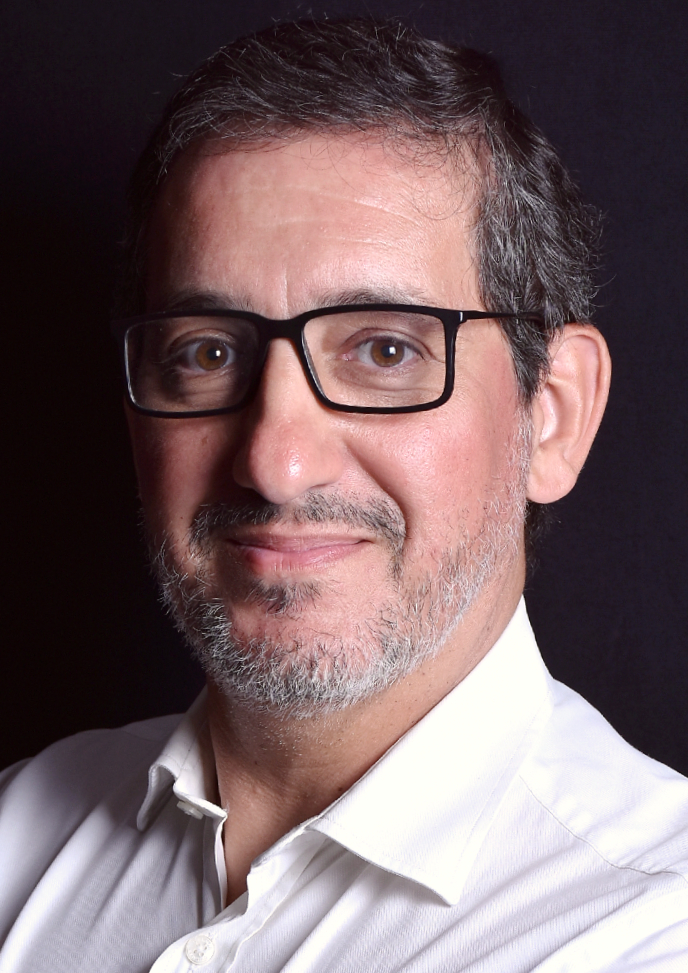
S.Y. Kung/贡三元 教授
Princeton University/美国普林斯顿大学
课程题目/Course Topic: The Golden Age of AI – Devices, Data, and Deep Learning/人工智能的黄金时代——设备、数据和深度学习
Abstract: The rapid advancement of AI is propelled by three ``D"-pillars: (1) Devices, enabled by resilient VLSI technology; (2) Data, driven by large-scale LLMs and big data; and (3) Deep Learning, powered by transformative neural architectures like transformers (NN3.0). This talk begins by tracing the evolution of neural networks—from MLP (NN1.0) and CNN (NN2.0) to today’s transformer-based models—highlighting how AI2.0 distills vast data into knowledge (D2K). Yet, while AI excels in specific tasks, achieving Artificial General Intelligence (AGI) demands a paradigm shift—integrating domain knowledge for short-term gains and ultimately enabling logical reasoning, scientific inference, and knowledge-to-knowledge (K2K) learning for long-term breakthroughs. Our second theme is focused on Regressive Component Analysis (RCA), a novel framework unifying subspace learning and supervision. With over 25 billion connected devices, our identity, habits, health, and other personal data may be inadvertently leaked or illegally hacked without. As such, it is of paramount importance to address the challenging issue of online utility-privacy tradeoffs. To this end, we demonstrate how RCA theoretically enables a novel privacy paradigm named ``compressive privacy” as a potential safeguard for online data in this treacherous era of AI. Finally, we highlight the emergence of AI-Mathematics (AIM)—a discipline that will prove fundamental to advancing intelligent systems, and our unequivocal theme is - in short - “Math is the Cornerstone of AI”.
课程摘要:人工智能的快速发展由三大"D"支柱驱动:(1)设备端(Devices),依托强健的超大规模集成电路(VLSI)技术;(2)数据端(Data),由大语言模型与大数据技术推动;(3)深度学习(Deep Learning),以Transformer等变革性神经架构(NN3.0)为核心。本次演讲首先追溯神经网络演进历程——从多层感知机(NN1.0)、卷积神经网络(NN2.0)到当今基于Transformer的模型,阐释AI2.0如何将海量数据提炼为知识(D2K)。然而,尽管AI在特定任务表现卓越,实现通用人工智能(AGI)仍需范式转变——短期需融合领域知识获取突破,长期则需建立逻辑推理、科学推断及知识到知识(K2K)的学习机制。
个人简介:贡三元(S.Y. Kung)是普林斯顿大学电子工程学教授。他于1977年获得斯坦福大学电子工程博士学位,曾任南加州大学电子工程系统教授,并担任斯坦福大学、代尔夫特理工大学和早稻田大学客座教授,同时是中国科学技术大学名誉教授及香港理工大学荣誉讲座教授。其研究领域涵盖机器学习、计算机视觉、超大规模集成电路阵列处理、系统建模与辨识、人工神经网络、无线传输、传感器阵列处理、多媒体信号处理以及生物信息学数据挖掘与识别。贡教授已发表400余篇论文及专著,包括:《超大规模集成电路与现代信号处理》(英文版与俄文版)、《大型神经网络》(英文版)、《主成分神经网络》(英文版)、《生物特征认证:现代方法》(英文版)。他自1988年起担任IEEE会士,并于1989-1991年任IEEE信号处理学会委员会委员,是IEEE信号处理学会多个技术委员会的发起人,包括超大规模集成电路信号处理技术委员会、神经网络信号处理技术委员会以及多媒体信号处理委员会。龚教授现任《IEEE信号处理汇刊》副主编和《超大规模集成电路信号处理系统杂志》主编。鉴于其学术贡献,他先后荣获IEEE信号处理学会技术进步奖、杰出讲席学者奖、最佳论文奖以及IEEE千禧年奖章等荣誉。
Brief Bio:S.Y. Kung is a professor of electronic engineering at Princeton University. He received his PhD in electronic engineering from Stanford University in 1977. He has served as a professor of electronic engineering systems at the University of Southern California. He is a visiting professor at Stanford University, Delft University, and Waseda University; Honorary Professor at the University of Science and Technology of China, and Honorary Professor at the Hong Kong Polytechnic University. His research areas include machine learning, computer vision, ultra-large-scale integrated circuit array processing, system modelling and recognition, artificial neural networks, wireless transmission, sensor array processing, multimedia signal processing, and biological information data mining and recognition. Professor S.Y. Kung has published more than 400 papers and monographs. Including: "large-scale integrated circuits and modern signal processing" (English and Russian versions); "large-scale integrated circuit processors" (English, Russian and Chinese versions); "digital neural networks" (English version); "primary component neural networks" (English version); "biological information authentication: a modern method" (English version). Professor S.Y. Kung has been a member of the IEEE Fellow Committee (1989-1991). He is the initiator of some technical committees of the IEEE Signal Processing Society, including the Technical Committee on Large-scale Integrated Circuit Signal Processing, the Technical Committee on Neural Network Signal Processing, and the Multimedia Signal Processing Committee. Professor Gong Sanyuan is the deputy editor-in-chief of IEEE Transactions on Signal Processing and the editor-in-chief of Journal of VLSI Signal Processing Systems. Professor S.Y. Kung's academic contributions have earned him the IEEE Signal Processing Society Technology Progress Award, the title of Outstanding Lecturer, the Best Paper award, and the IEEE Millennium Medal, among other honours.

陈志远/Zhiyuan Chen 教授
诺丁汉大学马来西亚分校/ University of Nottingham Malaysia
课程主题 / Course Topic: 现代模式识别技术与方法/ Modern Technologies and Methods in Pattern Recognition
课程摘要:本短期课程(总时长8小时:6小时理论授课+2小时实验操作)为学员提供现代模式识别技术与方法的精要导览,重点涵盖监督式与无监督学习两大技术体系。课程将系统讲解线性回归与分类的基础理论,深入剖析无监督学习算法及其工程实践,并通过实验环节强化理论知识的应用转化。专为希望夯实模式识别基础的学生与专业人士设计,实现理论与实践的有机融合。
Abstract: This short course provides a concise yet comprehensive introduction to modern pattern recognition technologies and methods, with a focus on both supervised and unsupervised learning techniques. Participants will explore foundational concepts in linear regression and classification and gain insights into unsupervised learning algorithms and their practical applications. The course also includes a hands-on lab session to reinforce theoretical concepts through practical experience. Designed for students and professionals seeking to strengthen their understanding of pattern recognition, this course offers a balanced blend of theory and application over a total of 8 hours (6 hours of lectures and 2 hours of lab work).
个人简介:陈志远教授现任诺丁汉大学马来西亚校区计算机科学学院院长、博士生导师,2022年7月起受聘为英国高等教育学会资深会士,同时担任英国计算机学会专业会员。作为马来西亚加速技术实验室(MIMOS)、电信研发中心(TM R&D)、未来作物研究中心及触角科技等政府机构与企业的首席顾问,她于2007年与2011年分别获得诺丁汉大学计算机科学哲学硕士及博士学位。赴任现职前,曾任职英国Horizon数字经济研究院研究员,研究领域涵盖计算机科学、机器学习、数据挖掘、用户建模与人工智能,并在相关方向发表多篇高水平论文。长期担任计算机科学与工程领域国际会议的咨询委员会主席、主旨报告人及分会主席,2012年入选中国教育部"海外高层次人才"。陈教授迄今已指导逾百名硕士生,培养6名博士毕业生,现有10名在读博士生;主持马来西亚科技创新部电子科学研究项目4项、高等教育部基础研究基金(FRGS)项目1项及企业合作项目20余项,发表高质量学术论文60余篇,其中最高被引论文引用次数逾300次。
Brief Bio: Professor Chen Zhiyuan is currently the dean and doctoral supervisor of the School of Computer Science at the University of Nottingham, Malaysia. He has been appointed as Senior Fellow of the British Higher Education Society since July 2022 and is also a professional member of the British Computer Society (BCS). He has served as chief consultant to government agencies, research institutes and enterprises such as Malaysia Acceleration Technology Laboratory (MIMOS), Telecom R&D Center (TM R&D), Future Crop Research Center and Tentacle Technology Corporation. She received her Master of Philosophy and PhD in Computer Science from the University of Nottingham in 2007 and 2011. Before joining her current position, she worked as a researcher at the "Horizon" Digital Economy Research Institute in the UK. Its research fields cover computer science, machine learning, data mining, user modelling and artificial intelligence. It has published many high-level papers on related achievements. She has served as the chairman of the Advisory Committee, Keynote Speaker and Chapter Chairman of the International Conference on Computer Science and Engineering for a long time. In 2012, it was recognised by the Ministry of Education of China as an "Overseas High-level Talent". Professor Chen has so far coached more than 100 master's students, trained 6 doctoral graduates, and currently has 10 doctoral students studying. He presided over four electronic science research projects funded by the Ministry of Science and Technology Innovation in Malaysia, one basic research fund (FRGS) project of the Ministry of Higher Education, and more than 20 corporate cooperation projects, and published more than 60 high-quality academic papers, among which the highest number of cited papers has been cited more than 300 times.

Hugo Gamboa 教授
葡萄牙新里斯本大学 / NOVA University of Lisbon
课程主题 / Course Topic: 生物信号解析/ Making sense from biosignals
课程摘要:本次讲座将从生物信号的采集、处理、特征提取到信息解析的全流程视角,简要介绍源自心脏、大脑、手部、肌肉、肺部及语音等部位的典型生物信号。通过具体案例,我们将展示如何从生物信号中挖掘知识价值并开发实际应用。特别针对多元生物信号,现场将演示如何从行为表征中提取身份特征、位置信息、活动模式及性格特质等多维数据。整个演讲将贯穿展示葡萄牙新里斯本大学与PLUX公司、弗劳恩霍夫研究所合作开展的系列研究成果。
Abstract: From the perspective of collection, processing, feature extraction, and making sense of biosignals, we will briefly cover the most commonly used biosignals extracted from our heart, brain, hands, muscles, lungs, and voice, among others. We will give examples and show opportunities for creating knowledge and applications from biosignals. Additionally, with multivariate biosignals examples, we will demonstrate the extraction of identity, location, activity, and personality from the behaviour expressed in biosignals. Throughout the presentation, we will showcase research examples conducted at Nova University of Lisbon in collaboration with PLUX and Fraunhofer.
个人简介:雨果·甘博亚(Hugo Gamboa)现任葡萄牙新里斯本大学科技学院物理系正教授,并担任LIBPHYS实验室主任。他毕业于里斯本大学高等技术学院,获电气与计算机工程博士学位。作为弗劳恩霍夫葡萄牙研究中心高级科学家,他负责协调里斯本办公室智能系统研究团队。甘博亚教授是医疗无线传感器领域科技初创企业PLUX的创始人兼总裁,该公司专注于微电子技术、生物信号处理及软件开发。他在LIBPHYS实验室领导的科研团队在医疗仪器、生物信号处理及机器学习在生物信号中的应用方面具有深厚造诣。已发表期刊论文60余篇,专著章节15篇,精选论文集10部,会议论文110篇,现为IEEE高级会员。
Brief Bio: Hugo Gamboa is a Full Professor at the Physics Department of the Nova School of Science and Technology of the NOVA University of Lisbon and Director of LIBPHYS. He is an Adjunct Professor at the School of Artificial Intelligence, Nanjing University of Information Science and Technology. He got his PhD in Electrical and Computer Engineering from the Instituto Superior Técnico, University of Lisbon. As a Senior Scientist at Fraunhofer Portugal, coordinates the Lisbon Office research group, which focuses on Intelligent Systems. He is the founder and President of PLUX, a technology-based, innovative startup in the field of wireless medical sensors, focusing on microelectronics, biosignal processing, and software development. He leads a research team on LIBPHYS, with expertise in medical instrumentation, biosignal processing, and machine learning applied to biosignals. Published more than 60 Journal Papers; 15 Book Chapters; 10 books (selected best papers); 110 Conference Papers. He is an IEEE Senior member.

Ana Rita Londral 教授
葡萄牙新里斯本大学/NOVA Univeristy of Lisbon
课程主题 / Course Topic: 开发改善患者疗效与医疗服务的技术/ Developing technology that improves patients' outcomes and healthcare services
摘要:本次演讲将聚焦于开发提升患者疗效与医疗服务质量的技术需求,尤其针对创新活跃、人口老龄化且医疗体系可持续性面临挑战的社会环境。基于价值医疗(Value-Based Healthcare)理念的研究动机,我们将展示系列研究项目:通过可穿戴技术与便携医疗设备优化患者照护,并利用医疗数据提升服务效率。
Abstract: This course will focus on the need to develop technology that enhances patient outcomes and improves healthcare services, particularly in societies with high innovation, ageing populations, and challenges to healthcare sustainability. The topic of value-based healthcare will be introduced as the motivation for the research topics presented. Research projects will be given that utilise wearable technologies and portable medical devices to enhance patient care and leverage healthcare data to deliver more efficient services.
个人简介:安娜·丽塔·隆德拉尔(Ana Rita Londral)教授拥有里斯本大学电气与计算机工程学士学位及生物医学科学(神经科学方向)博士学位,现任葡萄牙新里斯本大学助理教授,并担任Value for Health协作实验室主任,同时兼任综合健康研究中心的资深研究员。她在医疗工程、数字健康及人工智能驱动的医疗创新领域拥有逾20年研究经验,主要致力于临床决策支持系统的数字工具开发与预测分析应用,其研究成果在AI患者监护、疾病进展建模及数字健康技术与临床工作流整合方面具有重要突破。作为20余项国内外研发项目(含多项欧盟资助计划)的核心成员,她成功实现了技术研发向临床实践的转化应用,并持续评估其规模化潜力与医疗价值。
Brief Bio: Ana Londral studied Electrical and Computer Engineering and holds a PhD in Biomedical Sciences with a specialization in Neurosciences from the University of Lisbon. She is an Assistant Professor at Nova University of Lisbon and directs a collaborative laboratory, Value for Health CoLAB. She is also an integrated researcher at the Comprehensive Health Research Centre. She brings over 20 years of experience in medical engineering, digital health, and AI-driven healthcare innovation. Her work focuses on developing and implementing digital tools and predictive analytics for clinical decision support, with significant contributions to AI-powered patient monitoring, disease progression modelling, and the integration of digital health technologies into clinical workflows. She has joined more than 20 national and international R&D projects, including several EU-funded initiatives, translating technology research into practical healthcare applications and assessing their scalability and impact.

Giovanni Saggio 教授
意大利罗马第二大学 / University of Rome Tor Vergata
课程主题 / Course Topic: 数字孪生:挑战、机遇与局限 / Digital Twins: Challenges, Opportunities, Limits
摘要:得益于前沿技术,如今我们能够长时间获取海量数据,从而为从简单到高度复杂的系统构建提供必要的关键要素。通过对特定对象(如设备、组件、系统等)进行长期数据采集与特征分析,可创建其虚拟副本——即数字孪生(Digital Twin,DT)。当数字孪生技术与机器学习及人工智能的智能算法相结合时,便催生出智能数字孪生(Intelligent DT,IDT)。目前,DT与IDT技术已在电子、机械、化学等领域成功应用,但其巨大潜力仍远未得到充分释放。
Abstract: Current advanced technologies have made it possible to acquire massive amounts of data over a long period of time. This allows us to strategically use these necessary and critical data elements to fully characterize systems from simple to highly complex. By collecting and extracting features from a specific object (including items, components, systems, etc.) over a long period of time, we can build a virtual copy of the object, namely a digital twin (DT). When digital twin technology is combined with intelligent algorithms such as machine learning and artificial intelligence, intelligent digital twins (IDT) are born. At present, digital twins and intelligent digital twins have been successfully applied in electronics, machinery, chemistry and other fields, but the relevant technologies are far from realizing their full potential.
个人简介:乔瓦尼·萨乔(Giovanni Saggio)教授,1991年获电子工程学士学位,1996年获微电子与通信博士学位,现任意大利罗马第二大学(托尔维加塔大学)副教授。作为斯坦福大学全球前2%顶尖科学家(2020-2024连续四年入选),同时担任INSTICC(信息控制与通信系统技术研究所)特聘研究员。2020至2022年间,他作为欧盟委员会"预防性医疗"国际专家组(IDIH)协调员,主导了涵盖日本、韩国、美国、中国及加拿大的国际合作项目。萨乔教授已出版多部专著及九本电子学领域教材,系CRC出版社特约作者,发表学术论文200余篇,担任多家期刊专题主编/客座编辑及编委会成员,持有十二项专利,并创立三家衍生企业:Captiks有限公司、Seeti有限公司及Voicewise有限公司。
Brief Bio: Giovanni Saggio graduated in Electronic Engineering (1991), PhD in Microelectronics and Telecommunication (1996), currently Associate Professor at the University of Vergata, Rome, Italy. He is in the TOP 2% most influential Scientists (Stanford University ranking, 2020-21, 2021-22, 2022-23, 2023-24) and appointed Distinguished Researcher (Institute for Systems and Technologies of Information, Control and Communication, INSTICC). He was the coordinator of the International “Expert Group” IDIH (International Collaboration Digital Transformation Healthy Ageing), for the European Commission, involving Japan, South Korea, USA, China, Canada) on “Preventive Care” (2020-2022). He is the author of several monographs and nine books on Electronics, is a featured author for CRC Press, author/coauthor of 200+ publications, Topic/Guest/Academic Editor and Section Board/Editorial Board Member for different Journals, granted twelve patents and founded three Spinoffs: Captiks Srl, Seeti Srl, and Voicewise Srl.

周挥宇/Huiyu Zhou 教授
英国莱斯特大学/University of Leicester
课程主题1 / Course Topic 1: 计算机视觉与大语言模型入门/ Introduction to Computer Vision and Large Language Model
摘要:计算机视觉旨在开发具有人类视觉系统能力的计算机系统,主要解决数字图像的获取与解析问题。该领域深度整合了数字图像处理、人工智能、计算机图形学及心理学等多学科知识。本课程将重点探讨当前实际应用的计算机视觉系统基础原理与技术,以及新型系统的研发方法,旨在帮助学员:1)掌握图像处理与大语言模型的基础原理与技术;2)培养计算机视觉软件设计与实现的实践能力。
Abstract: Computer vision is the development of a computer-based system with the capability of the human vision system. It is primarily concerned with the problem of capturing and interpreting digital images. The study draws heavily on many subjects, including digital image processing, artificial intelligence, computer graphics and psychology. This course will explore some of the basic principles and techniques from these areas that are currently used in real-world computer vision systems, as well as the research and development of new systems. The objectives are to develop an understanding of the fundamental principles and techniques of image processing and large language models, and to acquire skills in designing and implementing computer vision software.
课程主题2 / Course Topic 2: 如何向IEEE会刊投稿 / Writing papers for IEEE
摘要:每年,科睿唯安(Clarivate)的《期刊引证报告》(JCR)都会对学术研究成果的影响力进行评估。数据显示,IEEE期刊在其各自领域的引用排名持续名列前茅。向IEEE汇刊与期刊投稿,意味着研究成果已具备一定的学术价值。本次报告中,周教授将首先介绍其研究团队与学术背景;其次阐述在IEEE汇刊发表论文的优势所在;进而剖析论文被拒的主要原因并深入解析论文质量评价标准;最后通过典型案例,具体说明高质量论文的关键要求。
Abstract: Every year, Clarivate's Journal Citation Reports (JCR) evaluates the impact and influence of academic research publications. Statistical data show that IEEE journals continue to rank among the top in their respective fields in terms of citations. Submitting a manuscript to IEEE Transactions and Journals indicates that the research work has a certain level of merit. In this presentation, Professor Zhou will first introduce his research team and background. Next, he will explain why publishing in IEEE Transactions and Journals is advantageous. Professor Zhou will then discuss the main reasons for paper rejections and further analyze paper quality. Finally, he will use several examples to illustrate the key quality requirements.
个人简介:周挥宇教授先后获得中国华中科技大学无线电技术专业工学学士学位、英国邓迪大学生物医学工程理学硕士学位,以及英国爱丁堡赫瑞瓦特大学计算机视觉哲学博士学位。现任英国莱斯特大学计算与数理科学学院正教授,累计发表学术论文600余篇。担任《Recent Advances in Electrical & Electronic Engineering》主编,以及《IEEE人机系统汇刊》《IEEE生物医学与健康信息学杂志》《模式识别》《PeerJ计算机科学》《IEEE Access》五大期刊副主编,同时担任国际机器人大会(ICRA)、国际人工智能联合会议(IJCAI)和英国机器视觉大会(BMVC)的领域主席。其研究项目获英国工程与物理科学研究理事会(EPSRC)、医学研究理事会(MRC)、欧盟委员会、英国皇家学会、利华休姆信托基金会、帕芬信托基金会、英国阿尔茨海默症研究中心、北爱尔兰投资局及工业界持续资助。周教授的个人主页: https://le.ac.uk/people/huiyu-zhou
Brief Bio: Prof. Huiyu Zhou received a Bachelor of Engineering degree in Radio Technology from Huazhong University of Science and Technology of China and a Master of Science degree in Biomedical Engineering from the University of Dundee in the United Kingdom, respectively. He was awarded a Doctor of Philosophy degree in Computer Vision from Heriot-Watt University, Edinburgh, United Kingdom. Dr. Zhou is currently a full Professor at the School of Computing and Mathematical Sciences, University of Leicester, United Kingdom. He has published over 600 peer-reviewed papers in the field. Dr. Zhou serves as the Editor-in-Chief of Recent Advances in Electrical & Electronic Engineering and Associate Editor of "IEEE Transactions on Human-Machine Systems", “IEEE Journal of Biomedical and Health Informatics”, “Pattern Recognition”, “PeerJ Computer Science” and “IEEE Access”, and Area Chair of ICRA, IJCAI and BMVC. His research work has been or is being supported by UK EPSRC, MRC, EU, Royal Society, Leverhulme Trust, Puffin Trust, Alzheimer’s Research UK, Invest NI and industry. Homepage: https://le.ac.uk/people/huiyu-zhou